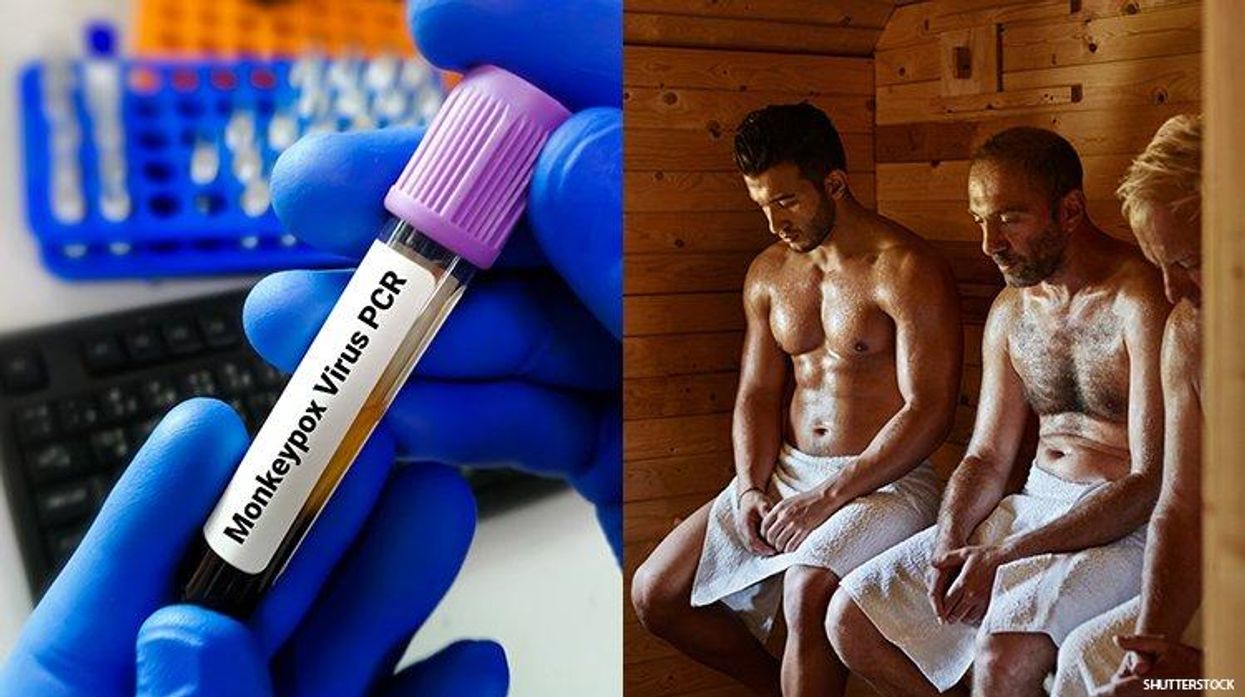News
Spain Monkeypox Outbreak Linked to Pride Festival & Gay Sauna

While not known as a sexually transmitted disease, monkeypox is spread through close contact.
May 23 2022 2:43 PM EST
By continuing to use our site, you agree to our Privacy Policy and Terms of Use.

While not known as a sexually transmitted disease, monkeypox is spread through close contact.
This piece initially ran on Advocate.com. Read the original here.
Spanish health authorities believe that a string of new monkeypox cases is linked to a gay sauna near Madrid and a Pride event in the Canary Islands that drew tens of thousands of people.
Spain announced 23 new cases Friday. Madrid regional health chief Enrique Ruiz Escudero told journalists that health officials have been tracing the cases from an outbreak at the now-closed sauna, Reuters reports.
"The Public Health Department will carry out an even more detailed analysis... to control contagion, cut the chains of transmission and try to mitigate the transmission of this virus as much as possible," Escudero said.
He told the Associated Press that another link may be a Pride event in the Canary Islands that saw around 80,000 people in attendance, the news wire reported Monday.
Elsewhere in Europe, an outbreak of monkeypox in Belgium has been connected to visitors at the Darklands fetish festival in early May, PinkNews reports.
At least three cases have been linked to the festival, according to the organizers.
“There’s reason to assume that the virus has been brought in by visitors from abroad to the festival after recent cases in other countries,” they said in a statement.
While many of the recent cases of monkeypox are among men who have sex with men, Dr. Agam Rao, a medical officer at the Centers for Disease Control and Prevention's Division of High Consequence Pathogens and Pathology, told NBC News that monkeypox isn’t considered a sexually transmitted disease.
“It’s probably premature and potentially even harmful to assume that there are only cases within that community,” she said. “There's going to need to be studies related to trying to isolate virus from seminal fluid or vaginal fluid. There’s really quite a lot of work that would need to be done before we would say that it can be transmitted sexually.”
However, the former head of the World Health Organization told the AP, “We know monkeypox can spread when there is close contact with the lesions of someone who is infected, and it looks like sexual contact has now amplified that transmission.”
The illness is endemic in animals in central and western Africa, according to the news wire.
Last Wednesday, Massachusetts confirmed the first confirmed case of monkeypox in the U.S. this year.
“The Massachusetts Department of Public Health (DPH) today confirmed a single case of monkeypox virus infection in an adult male with recent travel to Canada,” the department said in a statement.
In a statement last week, Dr. Hans Kluge, the WHO regional director for Europe, said that the new cases that have emerged in the U.S., Europe, and elsewhere, have been “atypical.”
“Firstly, because in this instance all but one of the recent cases have no relevant travel history to areas where monkeypox is endemic, in West Africa or Central Africa. Secondly, because most of the initial cases found are being detected through sexual health services and are among men who have sex with men. And thirdly, because of the geographically dispersed nature of the cases across Europe and beyond, this suggests that transmission may have been ongoing for some time,” he said.
Kluge added that the WHO is troubled over the summer season’s festivals and parties.
“I am concerned that transmission could accelerate, as the cases currently being detected are among those engaging in sexual activity, and the symptoms are unfamiliar to many,” Kluge said.
Monkeypox is a zoonotic orthopoxvirus that appears similar to smallpox, although significantly less deadly. Most outbreaks in Europe and elsewhere in the Western Hemisphere are related to the exotic pet trade and international travel.
Initial symptoms of the monkeypox virus include fever, headache, myalgia, fatigue, and swelling of the lymph nodes. After one to two days, lesions may develop in the mouth and later the face and extremities like the palms and soles. The rash may further spread, and the number of lesions can range from just a few to thousands.